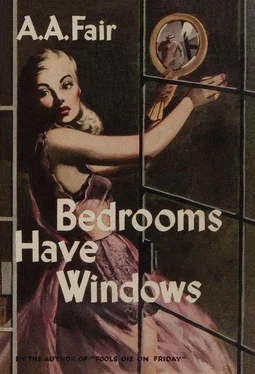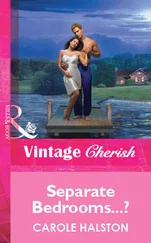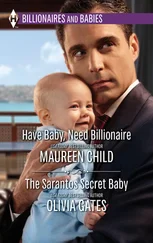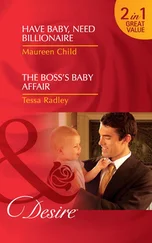“You have the films for these pictures?” I asked.
“Yes.”
“Give me the films for these two, will you?”
“Why?”
“I want them.”
She hesitated a moment, then took films from the pocket on the other side. She walked over to hold them up to the light so she could identify the ones she wanted. She had her back to me. I watched her shoulders move, watched the semi-opaque films coming up to the light.
She picked out the films I wanted, handed them to me.
“Got an envelope?” I asked.
By way of an answer, she dumped the rest of the films out and handed me the empty envelope.
I looked at the films. They were good and clear, two and a quarter by three and a quarter. They’d enlarge nicely.
“Nice exposure,” I said.
“Cut the personal stuff, please.”
“I was referring to the shutter timing,” I said.
“Oh!”
I studied the films. “And well developed.”
“That corner drugstore has done my developing for three years.”
I said, “That time I wasn’t referring to the films. I was talking about your figure.”
She made as if to throw a book at me, but she couldn’t keep the twinkle out of her eyes.
“So you haven’t heard from Stanwick Carlton?” I asked.
She smiled and shook her head and said, “I suspect Stan-wick doesn’t like me. After all I’m linked with Minerva’s purple past.”
“Did she have one?”
“Don’t be silly. He’s jealous, possessive and suspicious.”
I said, “You might read the rest of your paper.”
“Why?”
“Minerva was found dead in the KOZY DELL SLUMBER COURT, an auto court about eight or ten miles outside of the city. She…”
Claire Bushnell dashed to the little smoking stand, whipped the paper open, tossing the comic section and the magazine part to the floor. I pointed to the account of the love-pact slaying.
While she was standing there in stupefied bewilderment, or the best imitation of it she could assume, I picked up the rest of the films, slipped them into my pocket and walked out, quietly closing the door behind me.
She didn’t even hear me go. The last I saw of her as I closed the door, she was standing with wide, horror-stricken eyes, reading the account of Minerva Carlton’s death.
The elevator wasn’t on the third floor and I didn’t wait for it. I took the stairs two at a time, climbed in the agency crock and got out of there.
Four blocks down the street I stopped the car to look at the films I had.
Two of them were nudes. In the other four, the girls wore bathing suits, but there was a man with them. Minerva Carlton’s head was resting on his bare torso. They both looked happy.
I put the films all together in the pocket of the envelope. The print order was on the front. “Three each on glossy,” it said.
I stopped the agency car at the address on Korreander Street and bustled up the steps of the white stucco bungalow.
A gaunt woman in the fifties, moving with awkward, swinging stride, came down the corridor. I could see her through the locked screen door. The inner door was open.
She stood tall and unsmiling, surveying me through the screen.
“What are you selling?”
“Nothing.”
“What do you want?”
“To see Mrs. Jasper.”
“What about?”
“An automobile accident.”
“What about it?”
“I want to find out how it happened. Her insurance company paid off on it.”
“What do you want to know about it?”
“I’ll tell her when I see her.”
She didn’t say, “Wait a minute,” or “I’ll see,” or “excuse me,” or anything else. She merely turned on her heel and I watched her long, angular figure as she strode unhurriedly down the hallway.
I heard the sound of voices. Then the woman was coming back, her long, thin legs swinging easily from the bony hips. Once more she stood in the doorway. “What’s your name?”
“Lam.”
“What’s your first name?”
“Donald.”
“Are you with an insurance company?”
“No.”
“What’s your interest in the accident?”
“I’ll tell Mrs. Jasper when I see her.”
“Have you talked with the people on the other side?”
“No.”
“Talk with the insurance company?”
“I prefer to give my information to Mrs. Jasper.”
“Well, she prefers to have you give it to me.”
I said, “Tell her if she wants to let that outrageous settlement stand, all she has to do is to refuse to see me. If she wants to be vindicated, she’d better talk with me.”
“What do you know about it?”
“A lot.”
Eyes as black as though they have been coated with Japanese lacquer surveyed me from deep sockets. Then she turned once more, walked back down the corridor, this time was gone for about a minute and a half, then returned and unlocked the screen door.
I went in.
She locked the screen door behind me.
“Which way?” I asked.
“Down the corridor,” she said. “First door to the left.”
I walked down the long carpeted corridor, turned to the left and entered a living-room.
The woman who sat in the wheel-chair was good-looking. Her hair was a rich shade of henna. The face was relatively unlined. The eyes were quick, alert and intelligent. If it hadn’t been for a little sag under the chin, she could well have been a lot younger than her years.
“How do you do, Mr. Lam,” she said. “I’m Amelia Jasper.”
“Mrs. Jasper,” I bowed. “It is a pleasure. I regret the intrusion at this hour, and on Sunday, but, you see, it’s the only day I have to gather material for the work I’m doing.”
“And what is your work, may I ask?”
I said, “I’m a free-lance writer.”
Her lips retained that fixed smile, but her eyes lost their cordiality. “A writer?” she asked coldly.
I said with some feeling. “I’m writing some articles on insurance and the way automobile insurance companies are operated. One thing I am attacking is the way they put a premium on committing perjury. When an accident takes place involving a car where one person, no matter how reputable, is the sole witness on one side, and several people on the other side are manifestly lying about what happened, the insurance company rarely takes the trouble to fight it out and…”
“Are you telling me?” Amelia Jasper interrupted, her eyes blazing with indignation. “I was never so humiliated in all my life. I take it you know about my accident.”
“The general circumstances only,” I said. “I understand you were riding alone.”
She hesitated a moment, then said, “Yes.”
“And there were three or four other people in the other car?”
“Four people,” she said. “Ignorant boors, people of exactly the type one would expect to find distorting the facts in order to obtain a paltry settlement of a few dollars.”
“It happened at an intersection?”
“Yes. I was coming into the intersection. I looked over on the right and saw no one coming. I glanced hurriedly to the left assuming that I would have the right of way over any vehicle on the left and that I needed to concern myself only with some vehicle on the right.”
“What happened?”
“These insufferable people ran into me. They were coming from the left. They were coming so fast that they entered the intersection long after I got there, but they had the consummate nerve to tell the insurance adjuster that they were already in the intersection when they saw me coming, and that I was driving at such terrific speed I couldn’t stop, that I ran into them.”
“Did you?”
“My car struck theirs, if that’s what you mean.”
Читать дальше









